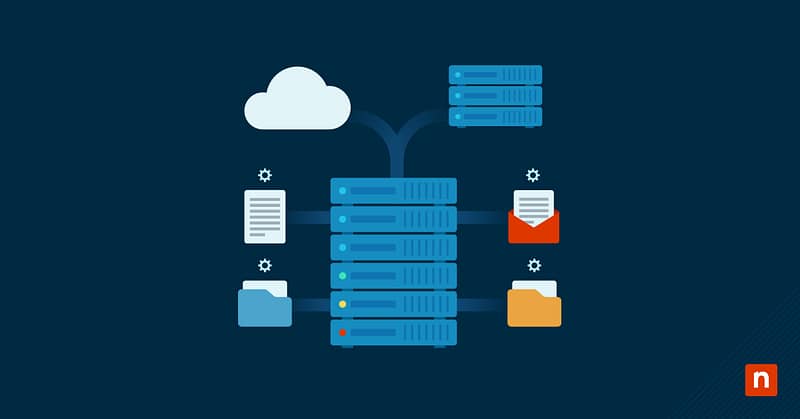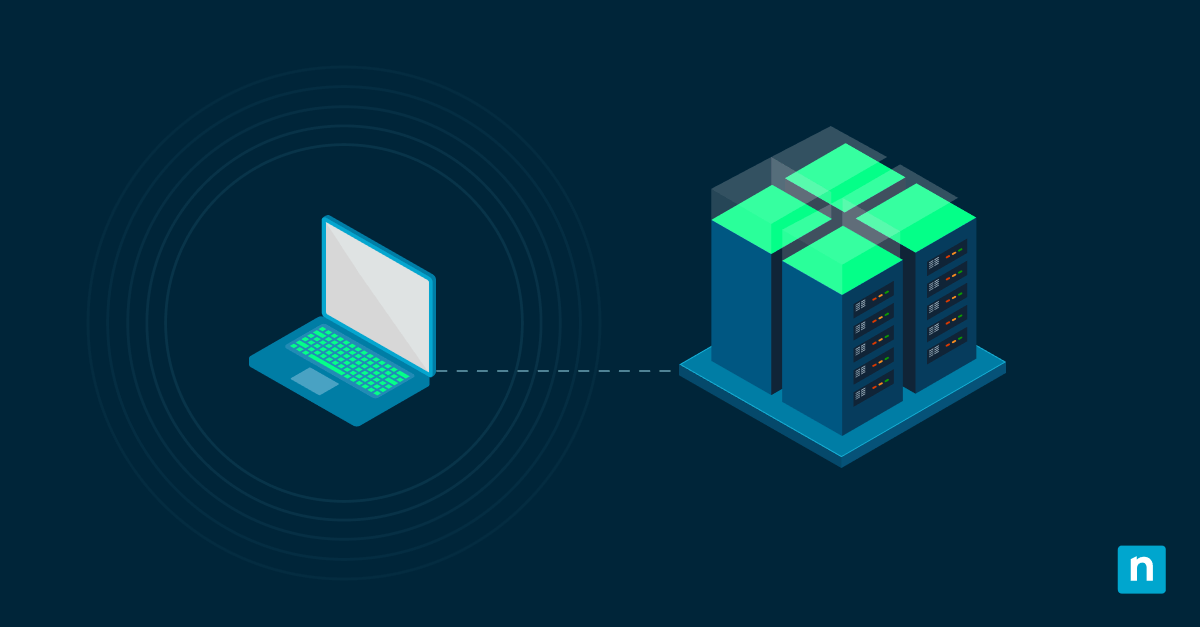Key Points
- Server backups are essential to protect growing volumes of business-critical data and minimize downtime.
- Backup failures often stem from manual processes, limited storage, and slow performance, underscoring the need for automation and monitoring.
- The 3-2-1 backup strategy improves data resilience by storing multiple copies across different media and locations.
- Regular restore testing and backup monitoring ensure data integrity and faster recovery during incidents.
- Automated, encrypted server backup solutions strengthen security, support compliance, and simplify backup management at scale.
There are plenty of disturbing data backup statistics everywhere you look. According to Unitrends’ Unified Backup Survey Report 2025:
- Despite 60% of organizations claiming they can recover from a downtime event within hours, in reality, only 35% actually can
- Only 25% of organizations test disaster recovery once per year or less
- 51% of organizations spend 10 or more hours per week managing backups
All these statistics make one fact crystal clear: data backup software and proper backup management are essential for every organization.
IT teams strive to successfully back up data wherever it is stored, from endpoint devices to servers. Back up and protect your data with ease by following these server backup best practices.
IT team or an MSP, NinjaOne can provide you with a powerful backup solution to protect all your critical data.
Why server backup is important for IT
As the IT market continues to grow, the number of servers in use also increases. Per Fortune Business Insights, the global servers market value reached $145.15 billion in 2025 and is expected to reach $ 154.82 billion in 2026 and $ 270.75 billion by 2034, representing a CAGR of 7.20% over the given period. In short, more servers mean more data that needs to be protected and backed up.
From minor setbacks to project failures, you never know precisely how data loss or theft can affect your organization, which is why it’s important to take proactive measures to prevent it. No business truly wants to deal with data issues, which is the reason why “60% of businesses back up their data daily in 2024, an increase of 15% from 2020.”
Why server backup is critical for MSPs
MSPs provide IT services to many clients, so they are responsible for protecting and safeguarding clients’ data, as well as their own digital information. To ensure the security and accessibility of clients’ data, MSPs need an MSP-focused server backup solution that can regularly perform server backups.
Why server backup is critical for IT departments
IT departments rely on server backups just as much as MSPs do, but unlike MSPs, they do not deal with clients; they back up only their organization’s servers. IT departments are responsible for ensuring that every team within a company has access to the data that they need to succeed. Additionally, they are also responsible for the safety and security of data, especially confidential information. IT departments can use a reliable backup tool, such as NinjaOne’s remote server backup, to quickly and efficiently back up all servers within their organization.
IT team or an MSP, NinjaOne can provide you with a powerful backup solution to protect all your critical data.
Backup challenges and how to overcome them
Although backup should be quick and easy, that isn’t always the case. Currently, there are four main backup challenges that IT teams face:
Backup space and resource requirements
All types of backups require space and resources; however, some backup methods require much less than others. For example, incremental backup requires significantly less space and resources than a full server backup. To overcome space and resource restraints, IT professionals often switch between different backup types to back up data completely without conducting full backups all the time.
Damaged or incomplete backups
One of the worst feelings in the world is finding out your valuable data has been damaged or corrupted during the backup process. To avoid this situation, IT teams implement disaster recovery testing. This testing ensures that information remains safe and whole throughout the data backup and recovery process.
Missing or failed backups
No one wants their backed-up data to go missing all of a sudden. The most likely cause of missing backups is forgetting to back up data and relying on manual work, or in other words, not setting an automated backup schedule. To prevent this, IT teams use a reliable backup solution with a scheduled backup and automatic alerts/notifications.
Slow backup speed
In the fast-paced world of IT, professionals don’t have time to sit and wait for their backups to load. Many factors that can slow down the backup process, such as lagging internet connections or using inadequate backup tools. Since many factors can contribute to a slow backup process, the best way to resolve this issue is to investigate and identify the contributing factors, then fix them.
5 server backup best practices to follow
1) Implement a 3-2-1 backup strategy
One excellent way to protect your data is to diversify where your backup copies are stored. A 3-2-1 backup strategy involves creating at least three copies of data, storing two copies on different types of media, and storing one backup in an off-site location or in the cloud.
2) Test data restoration regularly
You never know when you’ll need to restore your backed-up data, so it’s essential to test your data restores regularly to ensure that they work properly. These tests will also give IT teams an idea of how long a restore will take, how much space it will require, and other important details, so that no one is caught off guard if a disaster occurs.
3) Automate backup processes
Manually backing up servers takes time, so it’s best to automate and schedule your backups rather than relying on manual efforts. With a server backup solution, you can schedule backups to ensure they run on time.
4) Monitor and manage backups
Sometimes, your backups don’t always go according to plan. Monitor and set up automatic alerts or notifications so you can catch failed or incomplete backups early before they cause issues.
5) Secure and encrypt data
The best way to protect your backed-up data is to secure and encrypt it. This is especially important for any IT teams that handle confidential information, such as healthcare information under HIPAA protection. Encryption will help protect against data theft, ransomware attacks, unauthorized access, and other serious threats.
Protect sensitive data with confidence and secure servers, endpoints, and SaaS data.
Try NinjaOne’s server backup solution
Want to make server backup as easy and fast as possible? Try NinjaOne’s server backup, which provides high-quality full-image backups for your servers. Ninja also offers flexible storage options, quick disaster recovery features, automated backup scheduling, and complete integration with RMM, patching, and other Ninja tools. Start simplifying your backup today with a free trial of NinjaOne.








